Buy now on Amazon: The Last Town on Earth
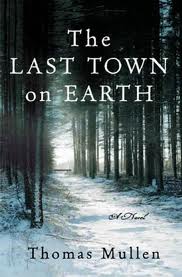
I was bothered by the title of this book since it isn’t really accurate. Perhaps it is meant to imply that the people felt as if they were in the last town on earth but that wasn’t really the case either. I kept expecting the story to somehow be something that it wasn’t.
It was a novel set in the northwest US in about 1917-1918 during WWI and the outbreak of the devastating flu epidemic. The location is Commonwealth, which is a town, formed around a mill but which had a special commune or kibbutz flavor since the owner of this factory organized the town to be a cooperative, paying fair wages, with one general store and a quasi town government, which would meet if there were issues to discuss.
The big issue is the deadly flu epidemic. The town, which is out of the mainstream and main roads, decides to isolate or quarantine itself from any outsiders by setting armed guards at the entryway into the town. The story evolves as two young men confront some soldiers who have strayed their way and desperately need to enter the town. The only way to prevent them from entering the town and possibly contaminating everyone with this dangerous flu is that these young guards might have to be to shoot them.
The author develops these characters as well as other town people so you know where they are coming from; you have a sense of their values and beliefs and appreciate their moral dilemmas when it comes life and death decisions, which they have to make. These were not everyday people as they each had their own journeys to this town but nevertheless you could put yourself in their shoes. This is the vehicle of the book.
Although the premise and unique qualities of the book did hold my interest, I did not find myself as invested in the characters and the stories as I frequently do with books that I immensely enjoy. I could put the book down and I can’t classify it as page turner (or a button pusher in the case of my Kindle.). The author did surprise me at times with twists in the plot and evoked emotions when people did not do well with disease that was descending upon them.
The book did get me to reflect on several issues.
One of them is the great fear that contagious diseases can instill in everyone including healthcare workers. Before we knew exactly how HIV was transmitted, I recall the fear in hospitals when patients with HIV were admitted and required procedures, which might spill blood. I published a study about the attitude of nurses in working with such patients. There was great fear and at time avoidance of patients by doctors and especially pregnant nurses. During my work in disaster psychiatry we had to think through the psychosocial problems we might encounter if an enemy might release a contagious agent or a harmful toxin somewhere in this country. What if a school were contaminated? Would we let the parents into the school or keep them out.? Would we not let family members visit contaminated people in the hospital if the illness was highly contagious. How close would we let staff get to the patients? We thought there should be lots of video communications. We also knew the fear and anxiety could be greater than the actual threat to life (although that could be problem also). During a saran gas attack by terrorists in the Tokyo subway a while back, 100 people were affected and a handful were killed but over 5000 people who were not affected appeared in panic state at local hospital overwhelming their ability to evaluate them. The importance of presenting clear information to the public in what is called risk communication has been studied by researchers. They have concluded that there needs to be a balance of truthful information put out through the media, but yet put out in a manner that would minimize tendency towards mass hysteria. The public has to trust the spokesperson i.e. Mayor Giuliani giving information about potential future terrorists during 9/11. There are special techniques which he used and experts in this field have studied.
The book also made me redouble my efforts to try be sure that we personally get the swine flu vaccine having already received the regular flu vaccine.
Another issue that I thought about was how Conscientious Objectors were treated during WWI. Apparently it was true that a certain number were actually treated harshly and beaten as depicted in the book. I know that during WW II COs did serve as medics as was the case in the VN war where I was a psychiatrist and had opportunity to evaluate a number of them who were either discharged or who clearly were assigned to noncombatant duty. I did not hear of any cases of physical abuse to them. The book touched idea of the anti-war movement in the WWI as well as in other wars or in the VN was which I was most familiar. One of the characters Rebecca who was shown to be suffragette as well as antiwar activist was a recurrent voice in the book.
When an author can stimulate thinking and discussion in a number of areas around the theme of the book he or she has made a worthwhile literary accomplishment.
My final conclusion is that in my opinion this is a good first novel but not a great one.
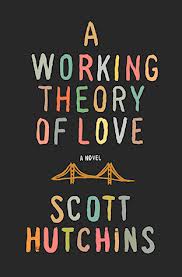

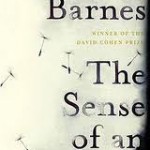
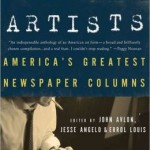
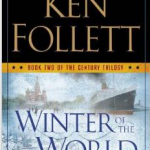
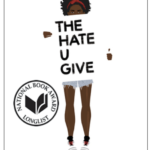
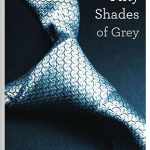
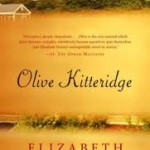
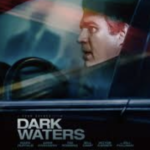


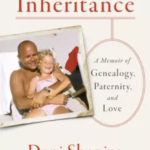



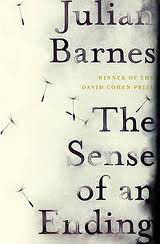
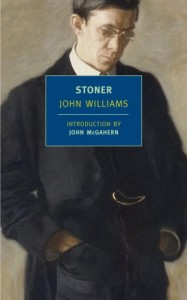
 This book is a fictional story narrated in the first person by someone who spends most of his life in a setting that most of us would not expect to identify with or relate to. That is growing up on the grounds of a hospital in Eithopia with one’s identical twin and loving adoptive Indian parents who are physicians along with the dedicated servant staff including the daughter of one them who is your age. You only know that your biological mother was a nun who died in childbirth and your biological father was a brilliant surgeon at the hospital who fled the country after an abortive effort of crushing the skull of your identical twin in order to try to extract him in a stalled delivery prior to you and your brother ultimately being saved through a Caesarian section performed by your soon to be adoptive father who was internist. Shortly thereafter your adoptive fathers would marry your adoptive mother who was the Ob-Gyn physician at the hospital who happened to be out of the country at the time of the tragic circumstances of the beginning of you and your brother’s life. As unique as all these circumstances seem to be, the subsequent issues in the life of the narrator while unusual are things that do happen in the course of human events and become powerful determinants of one’s life story. Despite being identical twins, the narrator’s brother seems to be on the “autism spectrum”, talking at a late age and usually saying very little, having minimal capacity for experiencing and expressing interpersonal emotions, although being objective to the point of ultimately developing an interest and a single minded obsession in women’s fistulas which leads him to wide recognition for his knowledge and advocacy in this arena . His directness as a young man leads him to a sexual experience with the daughter of the household servant which sets off a crescendo of events that go on through a lifetime of the characters in this book. As is so often the case of lives and events, each intersection makes a change which will be so important in another significant event which will change another one. One misunderstanding or missed opportunity has set up a future event, which will forever change one’s life. Because the author has chosen to follow his characters for significant portions of their life cycle we come to know them in great depth so we empathize with most of them in a very meaningful way. We do pay a price for this depth of knowledge and understanding of the characters as the author has intertwined his narrative with endless detail about external events of climate, vegetation and seemingly unrelated incidental thoughts of the characters. I had to fight my obsessive style of not skipping sentences or paragraphs in a book as I usually deplore the style, which skims ahead for dialog or events in a wordy book although at times I lost this battle. The final reward for reading this book is an insight into one family and a glimpse of life in Ethiopia during the regime of Halle Sal isse as well as a little bit of the feel of the revolution which disposed him . The author being a physician also writes in great detail (sometimes more than you need) about the medical issues of the people who come to the hospital and as well those of some of the characters whom you have come to care bout. He also blends in some ethical dilemmas which not only challenged the characters but will most likely fascinate the reader. In the end the reader has taken a meaningful journey with the narrator and the people close to him and you cannot help but feel you are the richer for it.
This book is a fictional story narrated in the first person by someone who spends most of his life in a setting that most of us would not expect to identify with or relate to. That is growing up on the grounds of a hospital in Eithopia with one’s identical twin and loving adoptive Indian parents who are physicians along with the dedicated servant staff including the daughter of one them who is your age. You only know that your biological mother was a nun who died in childbirth and your biological father was a brilliant surgeon at the hospital who fled the country after an abortive effort of crushing the skull of your identical twin in order to try to extract him in a stalled delivery prior to you and your brother ultimately being saved through a Caesarian section performed by your soon to be adoptive father who was internist. Shortly thereafter your adoptive fathers would marry your adoptive mother who was the Ob-Gyn physician at the hospital who happened to be out of the country at the time of the tragic circumstances of the beginning of you and your brother’s life. As unique as all these circumstances seem to be, the subsequent issues in the life of the narrator while unusual are things that do happen in the course of human events and become powerful determinants of one’s life story. Despite being identical twins, the narrator’s brother seems to be on the “autism spectrum”, talking at a late age and usually saying very little, having minimal capacity for experiencing and expressing interpersonal emotions, although being objective to the point of ultimately developing an interest and a single minded obsession in women’s fistulas which leads him to wide recognition for his knowledge and advocacy in this arena . His directness as a young man leads him to a sexual experience with the daughter of the household servant which sets off a crescendo of events that go on through a lifetime of the characters in this book. As is so often the case of lives and events, each intersection makes a change which will be so important in another significant event which will change another one. One misunderstanding or missed opportunity has set up a future event, which will forever change one’s life. Because the author has chosen to follow his characters for significant portions of their life cycle we come to know them in great depth so we empathize with most of them in a very meaningful way. We do pay a price for this depth of knowledge and understanding of the characters as the author has intertwined his narrative with endless detail about external events of climate, vegetation and seemingly unrelated incidental thoughts of the characters. I had to fight my obsessive style of not skipping sentences or paragraphs in a book as I usually deplore the style, which skims ahead for dialog or events in a wordy book although at times I lost this battle. The final reward for reading this book is an insight into one family and a glimpse of life in Ethiopia during the regime of Halle Sal isse as well as a little bit of the feel of the revolution which disposed him . The author being a physician also writes in great detail (sometimes more than you need) about the medical issues of the people who come to the hospital and as well those of some of the characters whom you have come to care bout. He also blends in some ethical dilemmas which not only challenged the characters but will most likely fascinate the reader. In the end the reader has taken a meaningful journey with the narrator and the people close to him and you cannot help but feel you are the richer for it. On the same day as I started writing this review, I heard a report on NPR of a group of Saudi women who are protesting the law in their country that women can’t drive a car and must be driven around by men or take a taxi. The subjugation of women in Saudi Arabia and other Moslem countries was the underlying theme of this novel
On the same day as I started writing this review, I heard a report on NPR of a group of Saudi women who are protesting the law in their country that women can’t drive a car and must be driven around by men or take a taxi. The subjugation of women in Saudi Arabia and other Moslem countries was the underlying theme of this novel 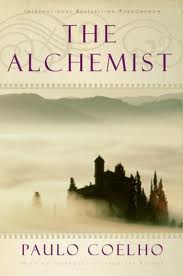 I don’t quite get it. This 1993 book has sold 65 million copies, it has been best seller in 74 countries, originally in Portuguese , translated into many languages apparently not French or Spanish but to me it is just a simple fable. This may be a very early social media phenomenon as the author spreads his books on file sharing networks, which facilitates the sales of them. Could it be because it is relatively brief, people take a chance on the book and many people buy it because it is a short popular book. Also perhaps it is popular in the Arab world ( where there are multimillions of people in many countries ) because the underlying theme includes a return to Mecca which is embedded in their religion. Maybe it is a popular gift in this world of readers.
I don’t quite get it. This 1993 book has sold 65 million copies, it has been best seller in 74 countries, originally in Portuguese , translated into many languages apparently not French or Spanish but to me it is just a simple fable. This may be a very early social media phenomenon as the author spreads his books on file sharing networks, which facilitates the sales of them. Could it be because it is relatively brief, people take a chance on the book and many people buy it because it is a short popular book. Also perhaps it is popular in the Arab world ( where there are multimillions of people in many countries ) because the underlying theme includes a return to Mecca which is embedded in their religion. Maybe it is a popular gift in this world of readers.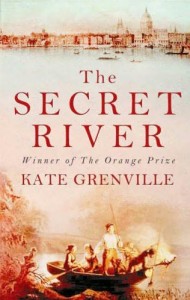 It is a well known fact that Australia was originally settled primarily by convicts who were shipped there by the Bristish government in the 18th and early 19th century.
It is a well known fact that Australia was originally settled primarily by convicts who were shipped there by the Bristish government in the 18th and early 19th century.  There are novels, which have a great plot, or story, which grabs the reader and takes them to a new place with new ideas. Then there are books which present fictional segments of life which may or may not flow together but give the reader a worthwhile journey . This work falls in the latter category and I haven’t yet made up my mind how glad I am that I took.this trip. Mr. Mc Cann certainly provided a very insightful look at the meaning of the famous high wire walk between two world trade center towers which took place more than 30 years ago. The hundreds or perhaps thousands of New Yorkers who looked up in the sky that morning were united for a period of time just as New Yorkers would be united on 9/11 many years later. This time however people seemed to share a single focus on this distant figure on a wire in their ultimate appreciation of one person’s determination to achieve something which very few people on earth would even dream could be done. In contrast to this amazing feat we are exposed to the lives a series of people who had very little control over the defining moments of their lives. We meet a group of disparate women who are drawn together because their sons were killed in combat. A young man who was a kind of a Priest but really just wanted to help people but never got a chance to realize love once he found it. We follow the sad lives of New York City street hookers whose lives lead nowhere . Even the daughter of one who finds a way out of poverty which would have led her to the streets, escapes it only by a quirk of fate. If we needed to be reminded, we see how New York City is a melting pot of an untold number of untold stories. I recall riding the subway many years ago in this enormous city and wondering how many of these anonymous people might somehow be connected by some degrees of separation. There is no special meaning to the causal connection which some of the characters in the book have to each other . There is no real reason why most of the people should be in the same book. The world spins and the author clipped a few people who were living in New York and told us about part of their lives. He did a good job but it might have been a great book if there had been a well thought out story ( but that would have been a different book).
There are novels, which have a great plot, or story, which grabs the reader and takes them to a new place with new ideas. Then there are books which present fictional segments of life which may or may not flow together but give the reader a worthwhile journey . This work falls in the latter category and I haven’t yet made up my mind how glad I am that I took.this trip. Mr. Mc Cann certainly provided a very insightful look at the meaning of the famous high wire walk between two world trade center towers which took place more than 30 years ago. The hundreds or perhaps thousands of New Yorkers who looked up in the sky that morning were united for a period of time just as New Yorkers would be united on 9/11 many years later. This time however people seemed to share a single focus on this distant figure on a wire in their ultimate appreciation of one person’s determination to achieve something which very few people on earth would even dream could be done. In contrast to this amazing feat we are exposed to the lives a series of people who had very little control over the defining moments of their lives. We meet a group of disparate women who are drawn together because their sons were killed in combat. A young man who was a kind of a Priest but really just wanted to help people but never got a chance to realize love once he found it. We follow the sad lives of New York City street hookers whose lives lead nowhere . Even the daughter of one who finds a way out of poverty which would have led her to the streets, escapes it only by a quirk of fate. If we needed to be reminded, we see how New York City is a melting pot of an untold number of untold stories. I recall riding the subway many years ago in this enormous city and wondering how many of these anonymous people might somehow be connected by some degrees of separation. There is no special meaning to the causal connection which some of the characters in the book have to each other . There is no real reason why most of the people should be in the same book. The world spins and the author clipped a few people who were living in New York and told us about part of their lives. He did a good job but it might have been a great book if there had been a well thought out story ( but that would have been a different book).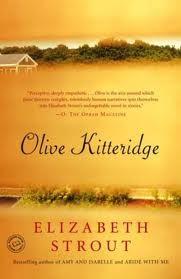 No doubt Elizabeth Strout is a talented insightful author who is able to use her main character, as well as well as those that are part of her life or cross paths with her, to mine a potpourri of human emotions more often on the bitter side. In each of her 13 chapters she deals mostly with a retired school teacher’s trials and tribulations whether it be with Henry her husband and long time pharmacist of their small town in Maine, Christopher her only son who doesn’t deliver her expectations as far their mother-child adult relationships or others whom she has encountered. Each story dealt with an original slice of life with unflinchingly honest depiction of the inner thoughts of Olive and the other characters. However, I have to admit, I had no problem putting down ( or shutting off my Kindle ) and never was in a rush to fire it up. I must be in the minority here as this is a Pulitzer winning book. Perhaps I am looking for a more refreshing uplifting or challenging reading experience that offers a new twist on the usual conflicts of life. I could easily understand why her son while dutiful was not anxious to be steeped in his mother’s needy wish for payback. This even made me reflect of how I hope that I would not put that expectation on my own kids (although I suppose I could), which allowed me to give some credit and value to this reading assignment. The concluding experience of Olive in her older age which allowed her to appreciate her need to love and be loved was another well done literary accomplishment of this book. However when I weigh all, I still have to give a thumbs down to this book
No doubt Elizabeth Strout is a talented insightful author who is able to use her main character, as well as well as those that are part of her life or cross paths with her, to mine a potpourri of human emotions more often on the bitter side. In each of her 13 chapters she deals mostly with a retired school teacher’s trials and tribulations whether it be with Henry her husband and long time pharmacist of their small town in Maine, Christopher her only son who doesn’t deliver her expectations as far their mother-child adult relationships or others whom she has encountered. Each story dealt with an original slice of life with unflinchingly honest depiction of the inner thoughts of Olive and the other characters. However, I have to admit, I had no problem putting down ( or shutting off my Kindle ) and never was in a rush to fire it up. I must be in the minority here as this is a Pulitzer winning book. Perhaps I am looking for a more refreshing uplifting or challenging reading experience that offers a new twist on the usual conflicts of life. I could easily understand why her son while dutiful was not anxious to be steeped in his mother’s needy wish for payback. This even made me reflect of how I hope that I would not put that expectation on my own kids (although I suppose I could), which allowed me to give some credit and value to this reading assignment. The concluding experience of Olive in her older age which allowed her to appreciate her need to love and be loved was another well done literary accomplishment of this book. However when I weigh all, I still have to give a thumbs down to this book